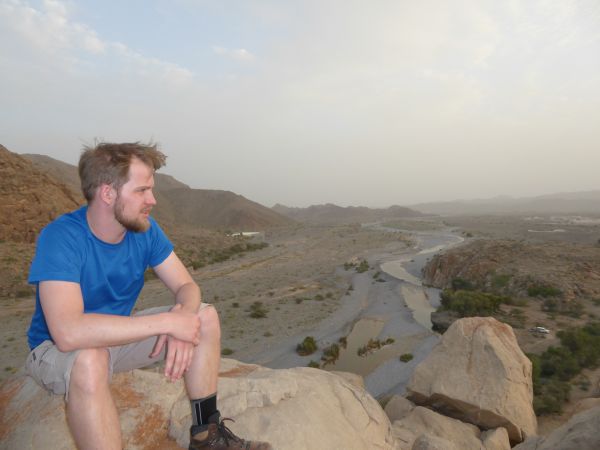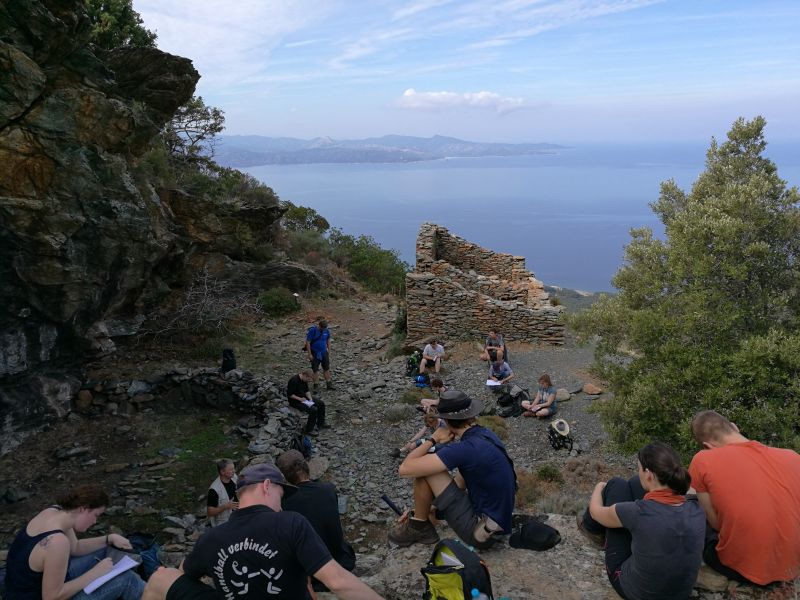My studies took me to foreign places!

When I started my studies in Greifswald in 2012, I knew the city but the university and the institute were still foreign to me. Now, six years and two degrees later, not only the city but also the institute has become home. Geology is a subject that doesn't take place at home at your desk, it takes place out in the world. As a geologist, you often work internationally and have the opportunity to travel the world (if you want to). This is one of the reasons why I decided to study geology, and because it combines my scientific interests. My studies actually took me to foreign places, including the USA and Oman. More about the excursions later ;)
It was clear from the start that there was a close-knit community among the geology students. Due to the rather small cohorts, there is also a very personal relationship with the lecturers and professors. I see great advantages in not being just one number among many students and thus not getting lost in the crowd. Almost everyone at the institute always has an open ear and an open door for their students and is happy to help with professional and personal concerns. However, you also have to be aware that this also places a certain demand on the students, which ultimately helps them to progress in their studies. The intensive support was particularly noticeable in my final theses. Thanks to the constant consultation and input from the supervisors, it was possible to delve very deeply into the subject matter and produce extensive work. Thanks to the support of my supervisor, I was also able to write my Master's thesis abroad.
The structure of the course is broadly diversified. Content is taught from many areas of the geosciences. These include hydrogeology, mineralogy, geophysics, palaeontology and marine geology. The basics of physics, math and chemistry are taught at the beginning of the course, so you shouldn't shy away from them! Fortunately, you are introduced to geology in the first semesters and learn about the structure of the earth on a large scale and the composition of rocks on a small scale. In addition to the lectures, there are exercises in many subjects in which you learn skills such as drawing geological maps and microscoping thin sections. This is exactly where the high level of supervision is noticeable, so I learned a lot in the exercises. Another big plus point for our institute!

Particularly noteworthy are the numerous excursions, the heart, so to speak, of what makes studying here so special. During the summer semester break, two excursions take place after the second and fourth semesters to teach us geological skills in the field. There are also other field exercises during the semester. For me, it was always impressive to see the theory I had learned put into practice. One of the most important features of the university in general is that it teaches a specialist way of thinking. This point becomes clear when you are on an excursion in front of an outcrop (unconcealed rock on the surface) and have to apply the knowledge you have learned in theory to the natural situation.
Practical work in the field includes, for example, mapping, in which areas are recorded on a map based on their geology, and hydrogeological work, in which the properties of aquifers are investigated with the help of measuring points. In addition to the work itself, which is a lot of fun, the community during such trips is also something that has welded us students together. Experiences such as driving a truck through an 800 m deep salt dome or sweating through miners' clothing after a tour lasting several hours at 45° C in a 1400 m deep coal mine are memories that make studying unforgettable!
